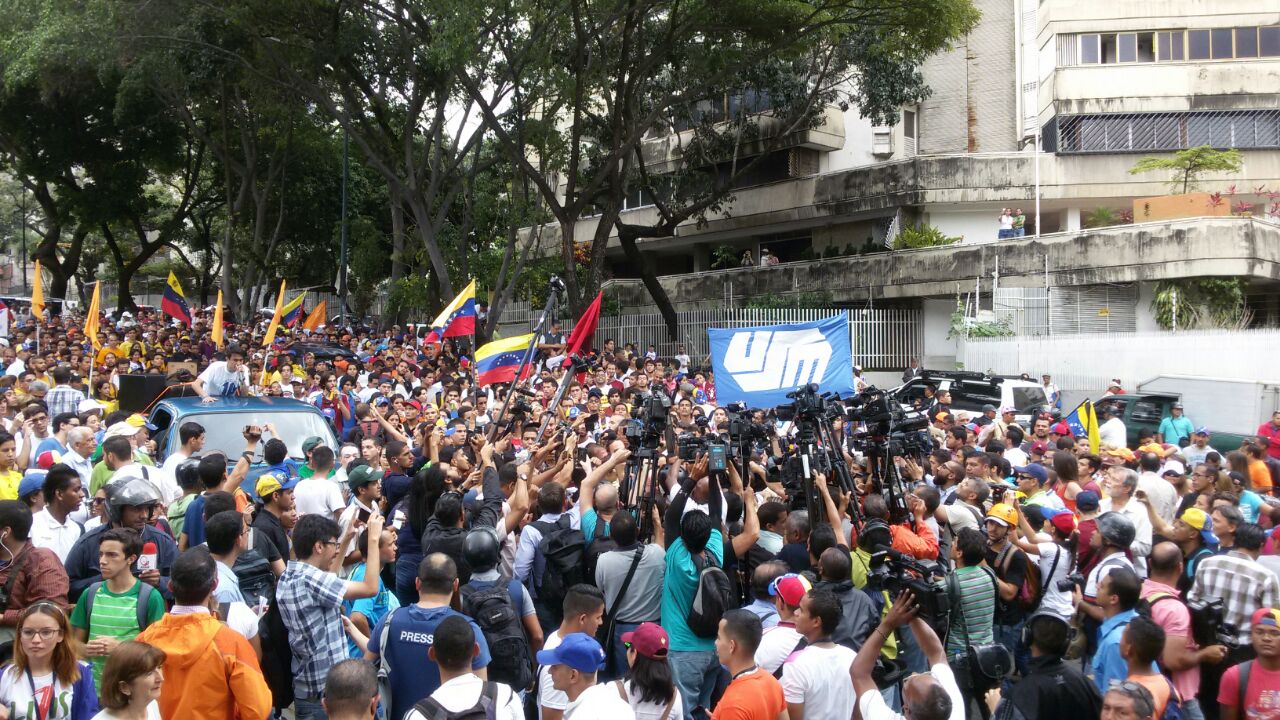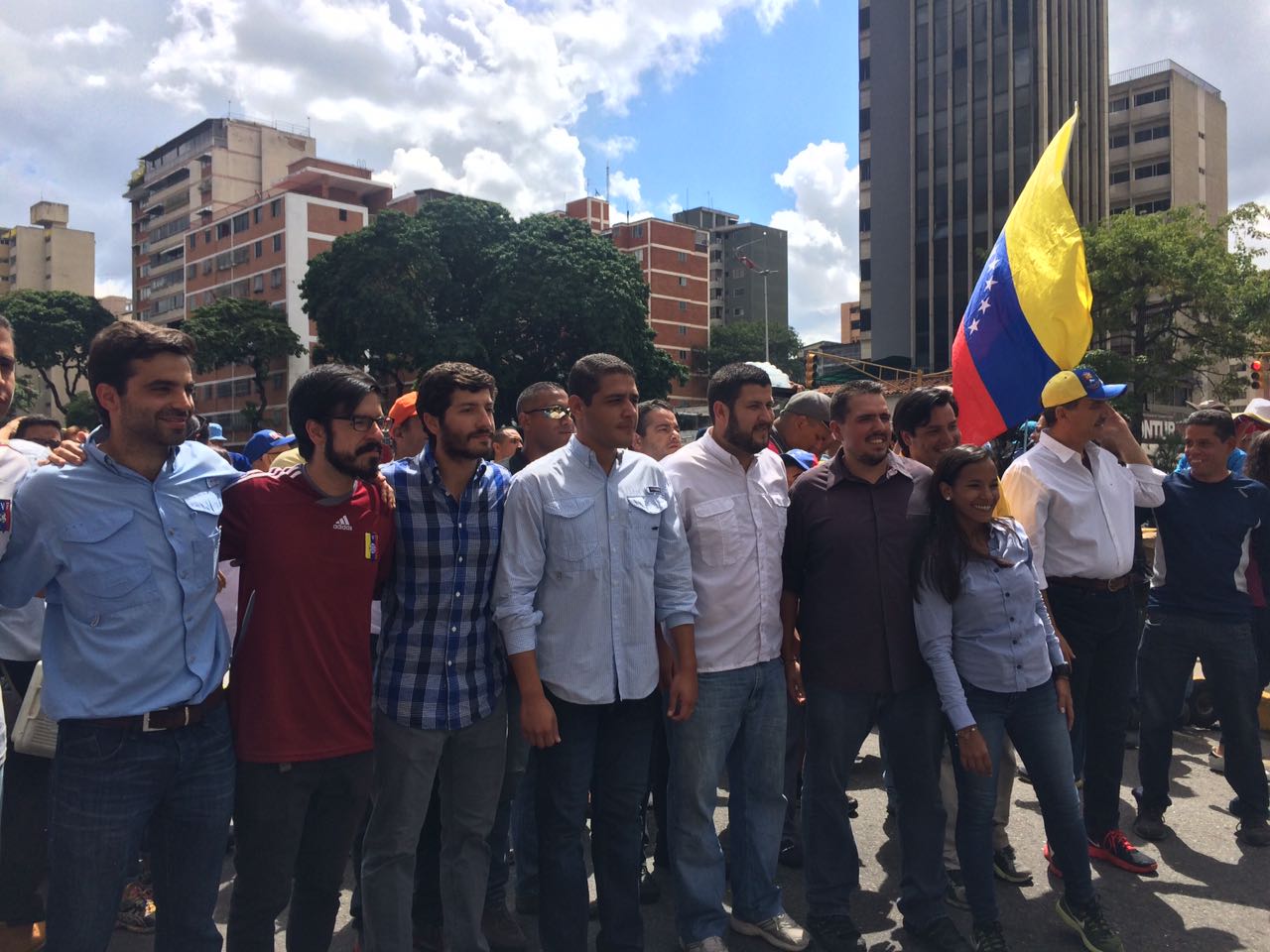The Student Movement won't come back overnight
The Movimiento Estudiantil had its first call to the streets independent from political parties in some years. It wasn't all that, but it's a start.


What you need to understand is that 2007 wasn’t exactly a spontaneous movement. It took months of planning, of failing, and of gathering momentum, until we finally had the strength to take political leadership, even over the parties
This is Roberto Patiño a couple of weeks ago talking at Caracas’s Universidad Metropolitana, UNIMET. He was addressing a group called VOX, about 50 of us interested in Leadership, including Samuel Díaz, who runs our Federación de Centros de Estudiantes. The recall had just been killed, and we’re curious and trying to make sense of it.
As he describes the meticulous planning that went into the now iconic 2007 movement, it hits us. We’d been expecting some sort of big bang from the outside: either the political parties would finally ponerse las bolas and march west or else the cerros would come down in a popular avalanche. Something spontaneous, something hard-hitting, some sort of peo.
But the peo wasn’t coming. It hadn’t been coming and it probably isn’t coming at all. Because social explosions aren’t all that different from physical ones. They don’t happen by themselves, and they don’t happen for no reason.
That’s the problem with the political fables we tell ourselves. We only see the big thing once it’s happened. Call it the Arab Spring, call it Chávez’s meteoric rise to power, call it the No campaign in Chile or Otpor against Milosevic. We often don’t bother to see the boring, humdrum prepwork. Which takes me to this week.
The reality, as far as the student world goes is this: everyone’s angry, everyone’s confused, and nobody likes anything that’s happening very much
My teammates here at Caracas Chronicles have already made an excellent job of, well, chronicling what’s been going on, so I won’t repeat it.
The reality, as far as the UNIMET student world goes is this: everyone’s angry, everyone’s confused, and nobody likes anything that’s happening very much.
We feel it’s wildly incoherent that MUD calls for a march only to call it off. And we find it damn near traitorous that they’ve been demanding some conditions for dialogue the whole year and suddenly, they don’t matter anymore.
In short, MUD’s political leadership is very far out on a limb.
So where do people turn?
Well, recent political history suggests two options: “organized civil society” in the form of chambers like Fedecamaras and CTV, and the Movimiento Estudiantil. Given the choice between 2002 and 2007, I’m all in for the latter. And, apparently, so is the rest of Venezuela. The problem is that us students don’t have anywhere near the rallying power we had in 2007, or that MUD has right now. We don’t get through as much. Now, how do we fix that?
Back to Roberto: it takes time. People — and this goes out specifically to student leaders (Samuel, Santiago, this is for you) — will not blindly follow just anyone anywhere anymore. The political parties manage to mobilize so many people because they’ve been building those relationships and their legitimacy for years.
It takes planning, and planning takes time.
This Thursday, the Student Movement took to the streets to hand a communiqué to the Papal Nuncio. It wasn’t a very large march — between students and the few politicians and parties that supported it, a few thousand people — but it got the job done.
We managed to mobilize — through our own means — a mass of people to achieve a limited political objective. Bear in mind that the Nunciature is right above Plaza Venezuela, in the chavista-run Libertador Municipality usually barred to opposition protests. So a tip of the hat to you, Jorge Rodríguez.

A shot of Thursday’s march.
A large part of the reason why some politicians, and specifically Voluntad Popular, supported the march was that those politicians were 2007 student leaders themselves. Juan Andrés Mejía, Miguel Pizarro, Roberto Patiño, David Smolansky, and quite a few others. Which tells me that, at least to some extent, our politics are changing. I trust these people, and that’s a whole lot more than I can say for most politicians out there.

The aforementioned.
To put it in simpler terms: our short-term solutions have brought upon most of our long-term problems
And I know this isn’t exactly the hopeful, uplifting message that you all want to hear. We have a very right-now kind of crisis. But some things cannot be rushed.
My goal isn’t just a Maduro-free Venezuela. My goal is a Republic, under the Rule of Law and Democracy, in which politics don’t take up 95% of my time.
Yes, removing PSUV from power is milestone #1 in the pursuit of that goal, but it’s far from enough. And that goal calls for coherence and true Leadership from us. It takes honesty, ethics, and hard work. It takes wearing the concept of citizenship as a badge of honour and behaving like decent human beings. And it means not succumbing to the standards and methods of this plainly evil dictatorship to rid ourselves of it. We will not solve our problems by becoming them.
So no, I’m not thrilled that MUD is on the verge of crumbling. I’m not satisfied with the Student Movement being able to muster no more than a few thousand people. I don’t think that handing a letter to the Nuncio is anywhere near enough.
But some people are starting to understand that building a country is big-picture, long-term work, and those people are starting to take charge of some decisions. And while it won’t mean Maduro leaves tomorrow or that all our problems are automatically solved, it does mean something.
It’s a start. And, for a change, it’s a step in the right direction.
Caracas Chronicles is 100% reader-supported.
We’ve been able to hang on for 21 years in one of the craziest media landscapes in the world. We’ve seen different media outlets in Venezuela (and abroad) closing shop, something we’re looking to avoid at all costs. Your collaboration goes a long way in helping us weather the storm.
Donate



